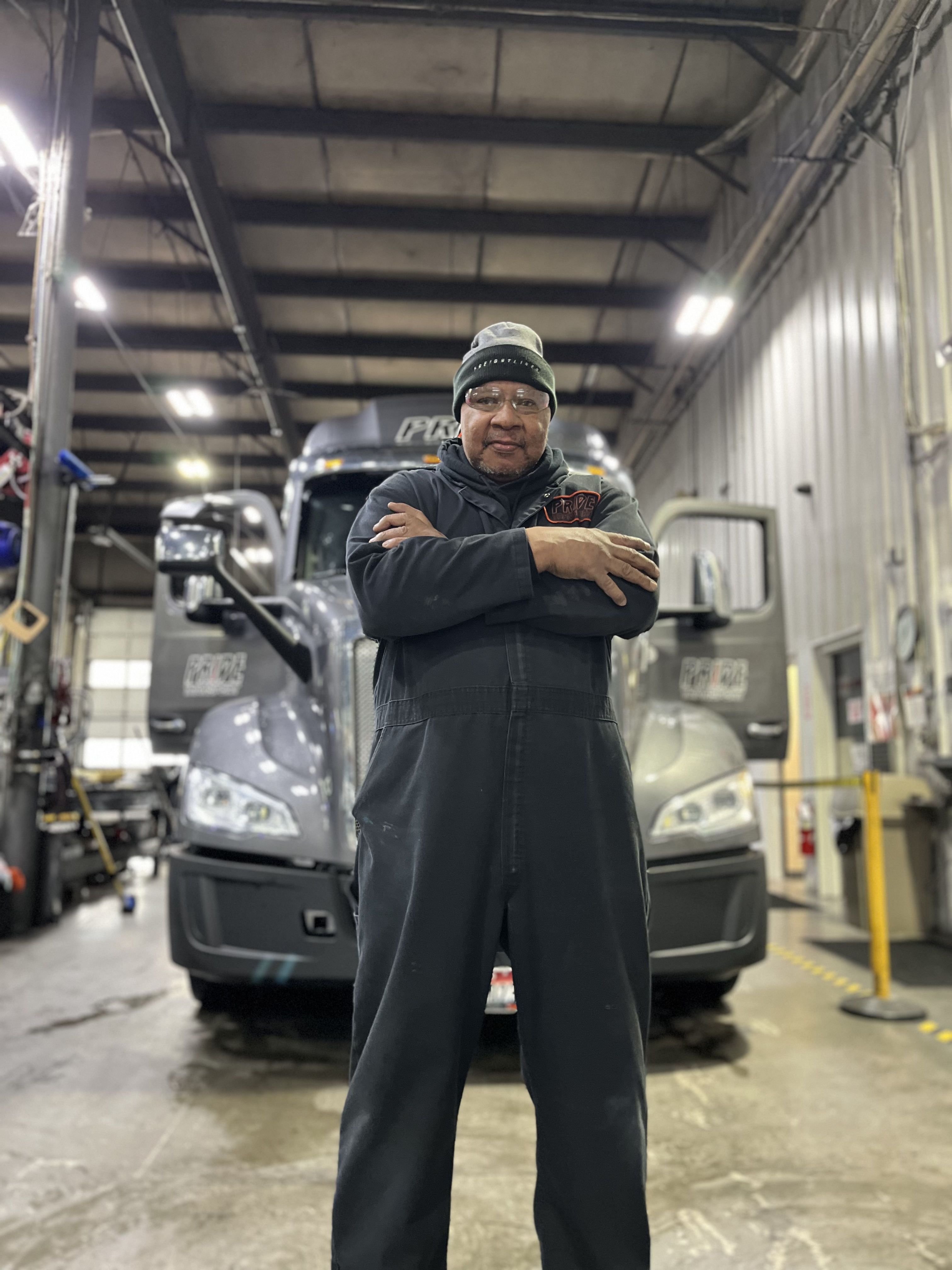by Pride Transport | Oct 11, 2024
The trucking industry is a large, complex business that relies on many different types of expertise and skill sets in order to thrive. Drivers might be the public-facing industry representatives, but many other behind-the-scenes roles are responsible for making sure drivers are prepared to safely transport freight from one location to another.
If a career in transportation seems like a good fit for you (but driving a truck does not), then keep reading to discover some of the roles you could pursue in this dynamic industry.
Logistics and Freight Management Roles
Moving freight across the country isn’t as simple as loading up the next available truck and hoping for the best. Businesses want to ensure that their freight arrives at its final destination undamaged, on time, and at a fair price for the service.
People in charge of logistics and freight management at a trucking company are responsible for coordinating all aspects of the supply chain to guarantee smooth freight delivery. Their work ensures that drivers have loads to haul and assures customers that each load will arrive at its next stop as efficiently as possible.
Some of the roles you’ll find in logistics and freight management include:
Freight broker: Freight brokers are the go-between for shippers and carriers. They negotiate the rates for freight transportation. Selling transportation services and negotiating fair rates requires extensive knowledge of supply chain management. It’s also helpful for freight brokers to have good interpersonal skills, as they need to build and maintain favorable relationships with customers to ensure long-lasting partnerships.
Logistics coordinator: The main responsibility of logistics coordinators is making sure that every step of freight transportation and distribution goes according to plan. They handle purchase orders and check product quality prior to shipping, then monitor the delivery process so they can make adjustments if needed. People with problem-solving skills and great attention to detail could excel in this role.
Fleet Maintenance and Mechanics
Truck maintenance is critical to a trucking company’s success. A well-maintained fleet allows the company to schedule more deliveries and pickups, helps to ensure driver safety, and better guarantees that freight arrives undamaged and on time. Companies operating with an unreliable fleet not only risk driver safety, they also risk losing business due to unexpected breakdowns or mechanical issues that can cause significant shipping delays.
Diesel mechanics, trailer technicians, maintenance supervisors, and other mechanics-focused careers require expert-level knowledge of diesel engines and the different functional systems in diesel-powered equipment. People in these types of roles should be able to inspect equipment, identify issues, and repair or replace damaged or worn parts. Modern tractor-trailers include more technologically advanced systems, so computer skills are equally important.

Dispatch and Operations Management Positions
When out on delivery, truck drivers count on the dispatch and operations teams to keep them on track and up-to-date with important travel information. Dispatchers in particular work closely with drivers to make sure they’re driving the most optimal route to better serve their customers and make the most efficient use of the driver’s time.
Successful dispatchers interact with drivers, customers, and vendors while maintaining high levels of organization and professionalism. They may be asked to solve logistical issues with little notice, so it’s also important that they’re comfortable working in fast-paced environments with minimal supervision. Previous experience in supply chain management or logistics is helpful in this role.
Other career paths to consider in this area include:
Fleet manager: Fleet managers oversee the management and maintenance of a company’s vehicle fleet. People with this job have responsibilities to both the company’s equipment and its employees. Equipment must be properly maintained and serviced throughout its lifecycle, which includes making sure it is insured and compliant with all applicable regulations. Drivers must be coached on correct vehicle operations, technology usage, and compliance practices.
Operations supervisor: Operations supervisors must be knowledgeable in every area of the business related to route planning and logistics because they have to make sure the people they supervise complete their jobs appropriately. They may assist with route planning, driver assignments, reviewing trip reports, and confirming that safety protocols are maintained.
Safety and Compliance Professionals
Truck drivers can cover hundreds of thousands of miles every year, driving year-round in every kind of weather imaginable and on every type of drivable surface (some more well maintained than others). For this reason, trucking companies take safety and compliance seriously — you just never know what a driver will encounter when they’re on their route.
People working in safety and compliance must thoroughly understand state and federal safety regulations. This can be extremely complex, because traffic and roadway laws can vary significantly from state to state. Additionally, federal and state regulations change, and compliance officers and safety managers must stay up-to-date with the latest rules.
Safety and compliance extend beyond truck driver safety, though. Maintaining workplace safety is critical at a trucking company, especially within the vehicle maintenance department. Safety professionals ensure that all workplace safety protocols are recorded, followed, and understood by employees.
Environmental and Sustainability Roles
Trucking is the preferred method of transportation for moving freight in the U.S. Combine this popularity with trucking’s impact on the environment and it’s easy to see why environmental protection and sustainability practices are becoming increasingly important in the industry.
Upholding environmental regulations and meeting sustainability goals requires specific expertise, which is why more trucking companies are hiring sustainability coordinators and environmental compliance specialists. People in these roles are responsible for helping employees understand and uphold practices that ensure better environmental protection. They may also be responsible for ensuring that the company meets all of the marks required by certain certifications, such as ISO 14001.
This type of position requires a great attention to detail, knowledge of sustainability best practices, and the ability to identify opportunities for improvement. Similar to safety compliance professionals, those in environmental and sustainability roles must be up for regularly evaluating processes and adjusting them to meet the most current regulatory requirements.
This is just a small sample of different career paths within the trucking industry. Like many other businesses, trucking companies have technology, marketing, sales, accounting, and human resources departments that require experienced professionals, too. Regardless of the position, we treat every team member like family at Pride Transport. Check out our non-driver careers today!
